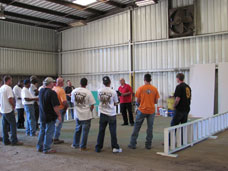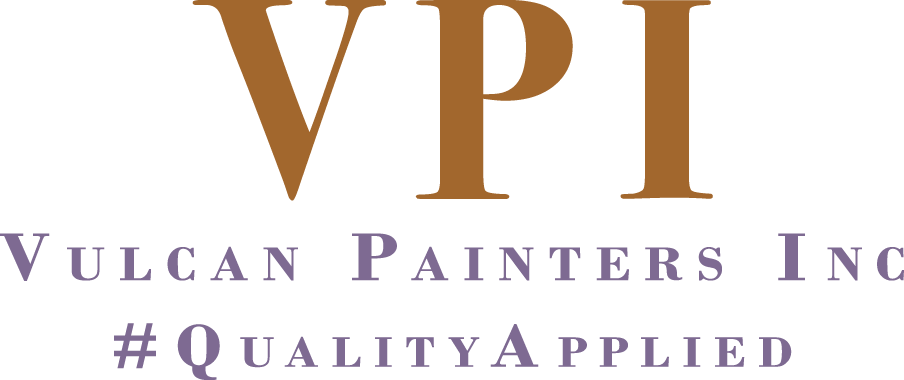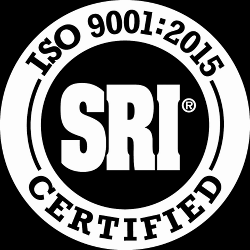Vulcan Painters Hosts National CAS Certification Exam
Bessemer AL, April 5--Vulcan Painters Inc. will host the Coating Application Specialist (CAS) two-day national certification test at its Minor facility April 13-14. Sixteen painters will take the examination, which is comprised of four multiple choice tests and a practical examination.

The practical exam requires the candidate to prepare and coat a test panel, using the same steps as he or she would to coat a complex industrial structure. The proctors evaluate the painter's skill and ability to plan steps and procedures, properly set up, operate and shut down abrasive blasting equipment; abrasive blast the test piece to a specific level of cleanliness and surface profile; inspect, assess, measure and document the surface preparation; mix and thin liquid coating materials; set up and start coating application equipment; set up and start spray, brush, or roller application as appropriate; brush, roll, and/or spray coat the test panel; inspect, assess, measure and document the coating application (each coat and the total coating system); and clean up and dispose of waste properly.
The written test is composed of four sections:
- Environmental, safety, and health
- Surface Preparation
- Coating Application
- Equipment/Troubleshooting
Painters are tested on their knowledge of environmental, safety and health codes, practices, standards and regulations, including rigging, scaffolding and ladders, fall protection, confined space, lock out tag out, aerial lifts, hazard communication, First Aid/CPR, electrical grounding requirements, fire protection, safety harnesses, safety related to abrasive and water blasting, ventilation, lead abatement and hydrocarbon solvent exposure, use and disposal; ventilation, waste minimization and handling and disposal of hazardous materials; chemical and dust exposure, personal protective gear, process control, including basic fluid and gas dynamics, basic electricity and chemistry, physical properties related to paint and protective coatings, and the influence of temperature and pressure; process control, test equipment, ambient conditions, surface conditions, quality control, quality assurance, failure analysis and troubleshooting of coatings; blasting and coating material properties, basics of corrosion, surface preparation on different substrates; equipment set up and operation; abrasive blasting; methods of measuring and assessing surface profile, identification of acceptable abrasive blasting; liquid coatings and their application; equipment and its maintenance; overspray control, drying and curing conditions, wet film thickness, film deficiencies; dry film thickness; requirements for maintenance painting; application methods on concrete and masonry, high pressure water cleaning and ultra-high pressure water jetting, electrostatic spray equipment, plural component spray equipment; powder coatings, thermal spray coatings and equipment, and specialty pipeline coating.
The testing will be conducted by two proctors, with monitors from both SSPC: The Society for Protective Coatings and the International Union of Painters and Allied Trades (IUPAT).
Based on consensus standards of SSPC and NACE, the National Association of Corrosion Engineers, the CAS program establishes standards for the training, experience, knowledge and skills that are required for the professional industrial painter. It also provides a standard to comprehensively assess & recognize the skills of the industrial painter.
Organizations such as the International Union of Painters and Allied Trades and its affiliates, and the National Center for Construction Education Research, have provided craft training over the years. CAS, however, is the first across-the- board certification "standard" for industrial painters applicable to the entire industry.





 ISO 9001:2015
ISO 9001:2015








